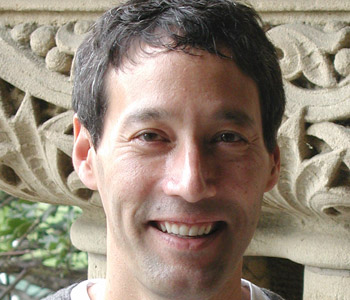Ian Goldin
Exceptional People: How Migration Shaped Our World and Will Define Our Future
Princeton University Press
352 pages, 6 x 9 inches
ISBN 978 0691145723
Discussions about migration in the media and elsewhere are limited by a lack of perspective of international migration’s historical role, contemporary impacts, and future prospects. Exceptional People addresses these gaps.
Migrants have been the engine of human progress throughout history. The movement of people has sparked innovation, spread ideas, relieved poverty, and laid the foundations for all major civilizations and the global economy. As processes of globalization have intensified, people have increasingly sought their fortunes outside the country of their birth.
Despite efforts to regulate and limit migration, social and economic changes during the 21st century will give more people the means and reasons to move. We should embrace this future because of the benefits it promises for sending countries, for receiving countries, and for migrants themselves.
My optimism is based on a growing field of multidisciplinary research and the evidence we present on the dynamics and impacts of migration.
Countries as a whole typically benefit from higher levels of migration. Particular communities and groups of workers nevertheless may be disadvantaged and see what they consider to be excessive migration as a threat to their employment and cultures. Political and other leaders should confront this challenge by adopting a range of measures which will reduce the impact of migration on any one community.
Exceptional People begins by considering the role of human migration in the development of civilization and innovation, showing the extent to which major achievements derive from our migratory history.
Migrants have allowed scattered human communities to benefit from the circulation of ideas and technologies that emerge from diverse sources. The movement of people across oceans and continents fueled the development of modern economies. In the contemporary period the movement of migrants continues to generate collective benefits by promoting innovation, connecting markets, filling labor gaps, reducing poverty, and enriching social diversity.
Most migration policies are premised on misconceptions about the long-term contributions of migrants and the social dynamics of the migration process. After investigating the past and present periods of migration, this book considers the future of international migration, its emerging global demographic, economic, and environmental trends.
Migration will shape future societies and the difference between good and bad policies now will have a dramatic impact on the extent to which societies will be able to harvest the opportunities and manage the new systemic risks of the 21st century.

Migrants are exceptional people because they make difficult choices and sacrifices in order to secure a better life for their communities, families and themselves.
Current debates about migration are generating a great deal of heat, but very little light. The book argues that migration has been a key driving force for economic growth and development. We ignore the contribution of migrants at our peril.
Governments are focused on managing and controlling migration, which is seen as a problem rather than an opportunity. All our societies, not least the United States of America, are built on previous waves of migration.
At various times in the past, levels of out-migration from various countries was greatly in excess of current levels—with up to a third of parts of Italy, Ireland and Scandinavia leaving. The levels of in-migration have also at times been much higher than is currently the case.
I am sensitive to the legitimate concerns of communities and individuals that feel threatened by migrants. And the book seeks to address these concerns.
But we also need to ensure that these voices of concern do not undermine the broader benefits that migrants bring to societies. To place walls around our countries or states would be counterproductive; in the longer term, this would stall growth and dynamism.
Exceptional People seeks to contribute to more effective discussions and policies on migration. And our aim has been to address non-specialists.
While I draw on my perspectives as an economist, the book is informed by a very broad set of materials, including the evidence of historians, anthropologists, demographers, and medical and other disciplines.
The ethical and philosophical underpinning of the book is based on my view that migration has a powerful role to play in poverty reduction and providing a more level playing field for distributional and intergenerational justice.
This is especially clear in the case of asylum seekers who require refuge to escape death or persecution—although the ethical arguments for migration go well beyond these extreme cases.
Historically, migration always was the means for people to escape dire poverty, persecution and famine, and for communities to seek to establish networks to foster growth and diversify risk. The widespread adoption of passports over the past 100 years, together with a quadrupling in the number of countries and increasingly stringent border controls, has broken this historical pattern.
While capital, goods and services can move more freely than ever before, the movement of people has never been more constrained. This has curtailed economic dynamism and growth everywhere, undermined poverty reduction, and led to a great deal of unnecessary human suffering.
Migration is a natural and irrepressible social process that will intensify in the 21st century. In a world more interconnected and unequal than ever before, an increasing number of people will have the means and motivation to move. We need new approaches to migration governance that embrace the latent opportunities of greater international mobility.
This book addresses a wide range of readers, and does not require any prior knowledge of the subject. But, even for specialist readers, the book contains enough which is new.
Exceptional People is unique in covering both historical and forward-looking perspectives from a range of disciplinary insights and from the perspectives of receiving countries, sending countries, and the migrants themselves.
Readers most concerned with the impact on the receiving countries will be interested in the examination of whether migrants cost societies more than they benefit, how they influence local wages and employment, and how the tax they pay relates to the benefits they receive.
There is fascinating new data which shows the remarkable contributions of migrants to start-ups, innovation and the dynamism of societies. The recently emerging data on the disproportionate contribution of migrants to new areas of economic growth surprised me—and I imagine it will surprise readers too.
For readers most concerned with the implications of migration for sending countries, the sections of the book which deal with the brain drain, remittances, domestic investment and the social and political costs of migration will be of interest. I have found that much of the literature on this fails to give a balanced view of the tremendous contribution made by people who have left their homes.
The book seeks to explain why individuals migrate and highlights that this decision is in fact usually taken in conjunction with families and even communities, and is highly related to the experience of friends and networks. The development of “migration chains” helps explain the high geographic concentration of migrants from certain sources with their destinations, as does the dispersal of these networks over time.
Policy makers and concerned citizens may be particularly interested in the third part of the book which is devoted to the likely future evolution of demographics and labor markets as well as the possible impact of environmental, climate, conflict and other potential drivers of migration.
The concluding chapter focuses on the global migration agenda. After highlighting the extent to which migration is the neglected orphan of the international system, this chapter offers suggestions as to what should be done.

Migration is a natural and irrepressible social process that will intensify in the 21st century. In a world more interconnected and unequal than ever before, an increasing number of people will have the means and motivation to move.
Migrants are exceptional people because they make difficult choices and sacrifices in order to secure a better life for their communities, families and themselves. They play an exceptional role in the societies they enter. Too often they are regarded as “others,” not part of the host society.
Current policies are too often counterproductive. A more effective and humane migration regime is urgently needed. Such regime needs to recognize not only that we all can trace our heritage and achievements to migration, but also that migrants produce enormous benefits and are the source of our future prosperity.




We don't put paywalls. We don't distract you with ads. We don't sell your data.
Please help to keep this running!